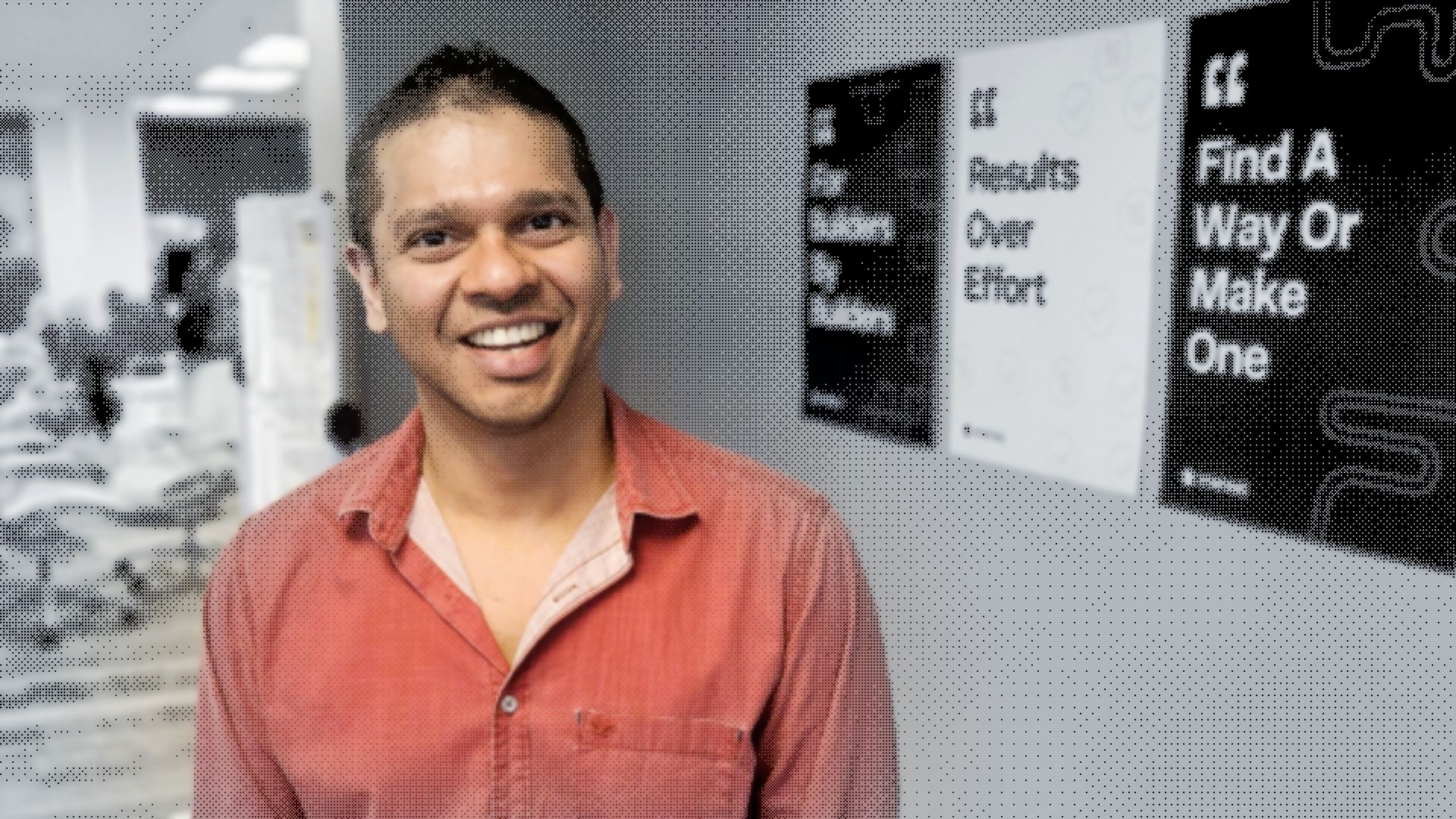- The Deep View
- Posts
- Claude maker worth more than most Fortune 500 companies
Claude maker worth more than most Fortune 500 companies

Welcome back. Trump's "no tax on tips" policy has just undergone a major expansion—the Treasury's new list of 68 qualifying jobs now includes influencers, streamers and podcasters alongside traditional service workers. Uber and DoorDash are still lobbying to get their drivers included.
1. Anthropic raises another $13B; brings company value to $183B
2. Google gets to keep Chrome despite antitrust loss
3. OpenAI's $1.1B all-stock deal to acquire Statsig
FUNDING
Anthropic raises another $13B; brings company value to $183B

First it was $5 billion. Then $10 billion. Now Anthropic has officially raised $13 billion, which the company claims brings its valuation to $183 billion — a figure that would make the Claude maker worth more than most Fortune 500 companies.
The company says it will use the funds to "expand capacity to meet growing enterprise demand, deepen safety research, and support international expansion." Corporate speak for “we need massive amounts of compute power and talent to stay competitive with OpenAI.”
Led by ICONIQ, the round was co-led by Fidelity Management & Research Company and Lightspeed Venture Partners. Others include Altimeter, Baillie Gifford, BlackRock, Blackstone, Coatue, D1 Capital, General Atlantic, General Catalyst, GIC, Goldman Sachs, Insight Partners, Jane Street, Ontario Teachers' Pension Plan, Qatar Investment Authority, TPG, T. Rowe Price, WCM Investment Management, and XN. That's 21+ investors for a single round.
Compare that to OpenAI's approach, which typically involves fewer, larger checks from major players like SoftBank ($30 billion), Microsoft, and Thrive Capital. OpenAI has also been warning against unauthorized SPVs that try to circumvent their transfer restrictions.
“We are seeing exponential growth in demand across our entire customer base,” said Krishna Rao, Anthropic’s Chief Financial Officer. “This financing demonstrates investors’ extraordinary confidence in our financial performance and the strength of their collaboration with us to continue fueling our unprecedented growth.”

What makes Anthropic's massive investor list particularly strange is their recent pickiness about investment structures. Just a few weeks ago, Anthropic informed Menlo Ventures that it must use the VC firm's own capital — not a special purpose vehicle — for this round, after Menlo had previously used an SPV for a $500 million investment.
The announcement comes less than a week after Anthropic released its Threat Intelligence Report, which outlined how Claude was being misused, including a ”large-scale extortion operation using Claude Code, a fraudulent employment scheme from North Korea and the sale of AI-generated ransomware by a cybercriminal with only basic coding skills.” The report also outlined steps the company took to detect and counter future misuse.
It also follows news that Anthropic reached a preliminary settlement with authors who claimed the company illegally downloaded millions of books to train Claude, avoiding a December trial that threatened the company's existence.
In early August, Anthropic pulled the plug on OpenAI’s access to Claude after discovering its engineers were using Claude’s code to benchmark and improve GPT-5, a move that violated Anthropic’s terms of service just ahead of the release of Claude Opus 4.1.
TOGETHER WITH IBM
New report reveals insights on AI-driven attacks
Our study found AI-driven attacks accounted for 1 in 6 data breaches.
Attackers can use generative AI to perfect and scale their phishing campaigns and other social engineering attacks. Gen AI can reduce the time needed to craft a convincing phishing email from 16 hours down to only five minutes on average.
BIG TECH
Google gets to keep Chrome despite antitrust loss

Federal Judge Amit Mehta ruled yesterday that Google can keep its Chrome browser and Android operating system but must end exclusive search contracts and share some search data — a ruling that sent Google shares soaring 8% in after-hours trading.
The decision comes nearly a year after Mehta found Google illegally maintained a monopoly in internet search. But the judge rejected the Justice Department's most severe remedies, including forcing Google to sell Chrome, calling the government's demands "overreached."
Key changes from the ruling:
Google can still pay distribution partners like Apple, just without exclusivity requirements
Must share search data with competitors and regulators
Prohibited from "compelled syndication" deals that tie partnerships to search defaults
Retains control of Chrome browser and Android operating system
Can continue preloading Google products on devices
Google can still make the billions in annual payments to Apple to remain the default search engine on iPhones — the arrangement just can't be exclusive. Apple shares jumped 4% on the news, likely relieved that their lucrative Google partnership remains intact.
For a company found guilty of maintaining an illegal monopoly, seeing your stock price surge suggests investors view this as a victory disguised as punishment. Google keeps its core revenue engines while making relatively minor adjustments to partnership agreements.
This comes after Perplexity’s recent bid of $34.5B to acquire Chrome from the tech giant.
Google plans to appeal, which will delay implementation for years. By then, the AI search revolution may have rendered these remedies obsolete anyway.
TOGETHER WITH DELVE
Getting compliant doesn’t have to take months.
With Delve, it takes 15 hours.
SOC 2, HIPAA, ISO, and more, automated with AI.
That’s why 500+ of the fastest-growing AI companies (Lovable, Cluely, Wispr Flow) already run compliance on Delve.
But compliance is only half the battle. The other half is enterprise reviews.
At Delve, we’ve sat through 100s of hours of security questionnaires.
We’ve seen every pointless checkbox, every SaaS-era question, every deal stalled because of them.
So today, we’re publishing something different: a manifesto with Bland AI on how security questionnaires should work in the age of AI.
Read the manifesto here
Book a demo here with code deepview-1koff for $1,000 off + white-glove onboarding.
ACQUISITIONS
OpenAI's $1.1B all-stock deal to acquire Statsig

OpenAI announced yesterday it will acquire product testing startup Statsig for $1.1 billion in an all-stock deal — one of the largest acquisitions in the company's history, though smaller than its $6.5 billion purchase of Jony Ive's AI hardware startup in July.
OpenAI is paying exactly what Statsig was worth just four months ago, when the Seattle-based company raised $100 million at a $1.1 billion valuation in May. Rather than a typical startup exit where founders cash out at a premium, this looks more like a high-priced talent acquisition.
Statsig builds A/B testing tools and feature flagging systems that help companies like OpenAI, Eventbrite and SoundCloud experiment with new features and optimize products through real-time data analysis. Think of it as the infrastructure behind every "which button color gets more clicks" test you've unknowingly participated in.
The acquisition brings Vijaye Raji, founder of Statsig, on board as OpenAI's new CTO of Applications, reporting to former Instacart CEO Fidji Simo. However, unlike the failed $3 billion Windsurf deal that never materialized, this one has a signed agreement and is awaiting only regulatory approval.
OpenAI's willingness to spend over $1 billion on experimentation tools suggests they're planning to launch numerous consumer products requiring extensive testing — the kind of rapid iteration cycle that made Meta and Google dominant.
Chief Product Officer Kevin Weil was reassigned to lead a new "AI for Science" division. Meanwhile, OpenAI is consolidating its consumer product efforts under former Instacart CEO Fidji Simo, with Raji overseeing the technical execution.
LINKS

Meet the guys betting big on AI gambling agents
AI agents are doing the work after Salesforce cuts 4,000 CS jobs
GSA inks agreement with Microsoft to offer federal agencies discounted AI tools
Apple’s lead AI researcher for robotics heads to Meta amid recent departures
Dolby releases next-gen Dolby Vision with AI for “Content Intelligence” tools
OpenAI rolls out parental controls, set guardrails to protect teens
Penn State receives a $1.5m grant for a 3-year pilot to educate students in AI
OpenAI subpoenas Meta in a legal case tied to Elon Musk’s reported $97b bid
Texas vodka company taps AI for mixology
WordPress introduces experimental AI development tool

Notebook Agent: Hex’s new agentic notebook for data analytics helps take away the most tedious parts of data work
Finden: Connects, organizes and manages files across various storage locations, for quick and seamless access, search, research and management
Google Finance Beta: Google Finance gets a refresh so you can ask questions based on real-time market data, news & price updates
Receiptor AI 2.0: Finds every receipt past & present, extracts data in context, auto-categorizes your expenses, and syncs to Xero/QBO

POLL RESULTS
Do you think suing their ex-employee is justified?
Yes (74%)
“Assuming this is asking about the situations in which ex-employees shared proprietary technology with another company after leaving, and that it actually happened with the appropriate intent to steal the information, then yes. It is impossible to leave your brain behind when you change companies, but you don't get to bring your new employer's IP that belongs to your old employer.”
No (16%)
“The need to sue is wasteful. Why were the trade secrets not secured behind firewalls, etc, or if used illegally, shredded? Security of information matters.”
Other (10%)

“The reflected colors in the fake image are too vibrant, and a little off as reflections from the buildings” “The amount of light on the East River is too much. I don't think the buildings would put out that much light at that distance” “The reflections in the water were the give-away that this photo wasn't real, and I didn't even critique the [other] pic.” |
 | “I’ve experienced this look personally.” “This one was tough. AI is getting too good with lighting.” “I have seen very similar real images many times.” |

The Deep View is written by Faris Kojok and The Deep View crew. Please reply with any feedback. Thanks for reading today’s edition of The Deep View! We’ll see you in the next one.
Take The Deep View with you on the go! We’ve got exclusive, in-depth interviews for you on The Deep View: Conversations podcast every Tuesday morning.

If you want to get in front of an audience of 450,000+ developers, business leaders and tech enthusiasts, get in touch with us here.





